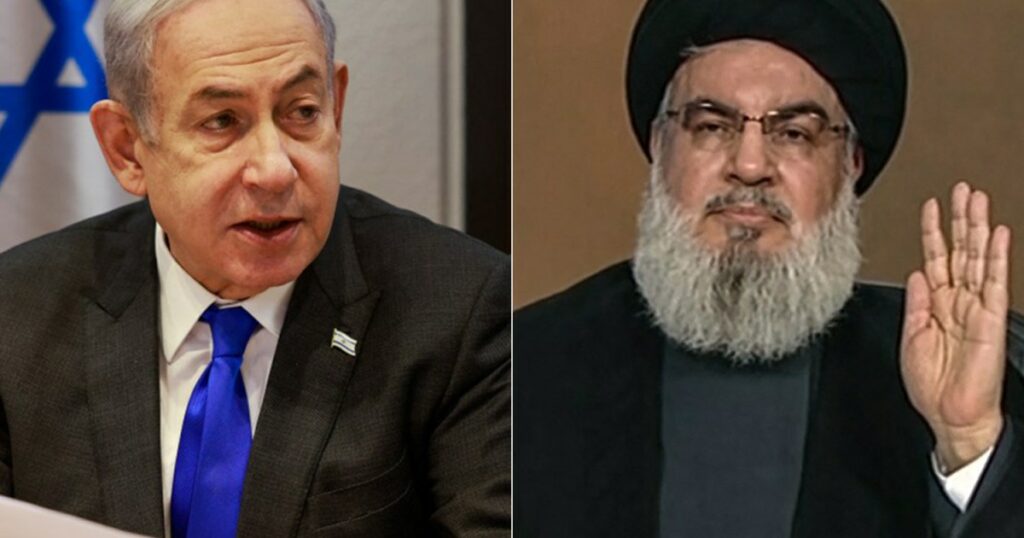Israel’s War on Gaza: What Comes Next with Hezbollah?
As tensions rise between Israel and Hezbollah, analysts are predicting an escalation in conflict, but opinions differ on what the future holds for the two adversaries. Israeli Prime Minister Benjamin Netanyahu and Hezbollah leader Hassan Nasrallah are at the center of this volatile situation.
Israel recently announced the withdrawal of most of its troops from Gaza, leading many in Lebanon to anticipate a potential showdown with Hezbollah, a powerful Shia militia and political entity to the north of Israel. The Israeli military has indicated its readiness to shift from defensive to offensive measures against Hezbollah.
“The commanders of the regular and reserve units are prepared to summon and equip all the required soldiers in just a few hours and transport them to the front line for defensive and offensive missions,” a statement from the Israeli army said.
Since October 8, Hezbollah and the Israeli military have engaged in attacks along the Lebanon-Israel border, following a series of conflicts between Hamas and Israel. The violence has resulted in casualties on both sides, with civilians bearing the brunt of the attacks.
As the conflict in Gaza continues, there are growing concerns that the situation may escalate further. Israel’s main objective in the north is to ensure the safety of its citizens by neutralizing the threat posed by Hezbollah, which is supported by Iran. Israeli Prime Minister Netanyahu has expressed a strong commitment to achieving peace along the border with Lebanon.
On the other hand, Hezbollah remains a formidable force in Lebanon, with significant support and a strong presence in the southern region of the country. Dislodging Hezbollah from this stronghold would prove to be a challenging task for Israel. Despite the ongoing conflict, Hezbollah leaders have remained defiant, insisting that they have only used a fraction of their military capabilities.
However, Israel’s domestic issues, including corruption charges against Netanyahu and calls for his resignation, have further complicated the situation. Netanyahu’s political opponents are pushing for new elections, adding to the uncertainty surrounding the conflict with Hezbollah.
While the possibility of a ground invasion of Lebanon remains unlikely, Israel may opt to expand its aerial attacks using drones and fighter jets. The memories of past conflicts with Lebanon, including the 2006 war, are still fresh in the minds of Israeli strategists. This historical context may influence the Israeli government’s approach to dealing with Hezbollah.
As tensions continue to rise between Israel and Hezbollah, the future remains uncertain. Both sides are preparing for potential escalation, with the possibility of broader regional implications. The coming days will be crucial in determining the course of this conflict and its impact on the wider Middle East region.
#future #bring #Hezbollah #Israel
navigate extremely difficult terrain and face a very determined and resilient opponent.”
Instead, analysts believe that Israel will likely continue to rely on airstrikes and drone attacks to target Hezbollah positions and leadership. This approach allows Israel to minimize casualties on its own side while still inflicting damage on Hezbollah. However, this strategy also carries the risk of causing civilian casualties and further destabilizing the region.
Overall, the future between Hezbollah and Israel remains uncertain, with the potential for further escalation and conflict. Netanyahu’s desire to stay in power and the broad public support for action against Hezbollah in Israel could push the conflict to new heights. However, the complexities of the situation, including Hezbollah’s strength in Lebanon and the risks of civilian casualties, make the outcome difficult to predict.

